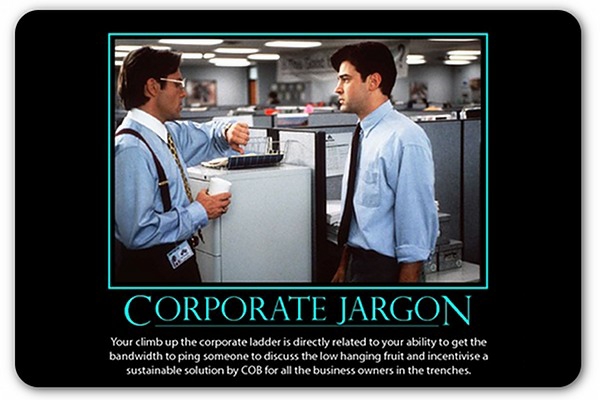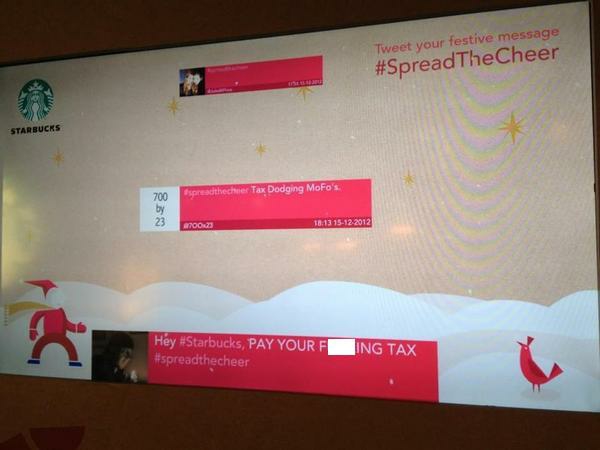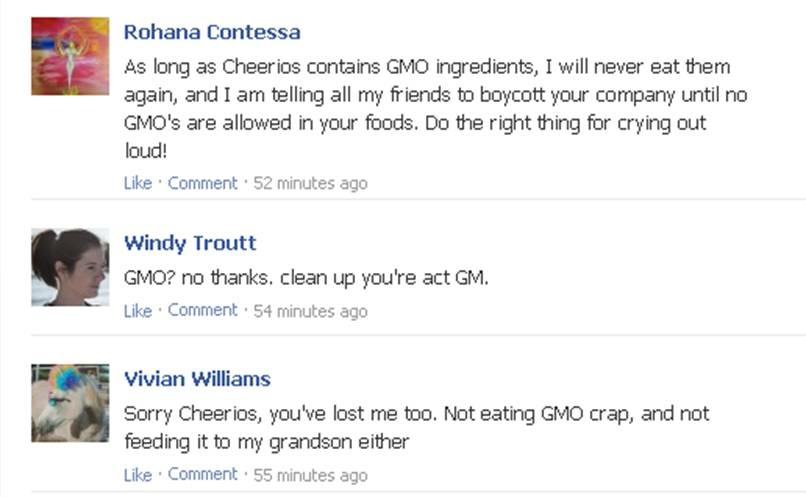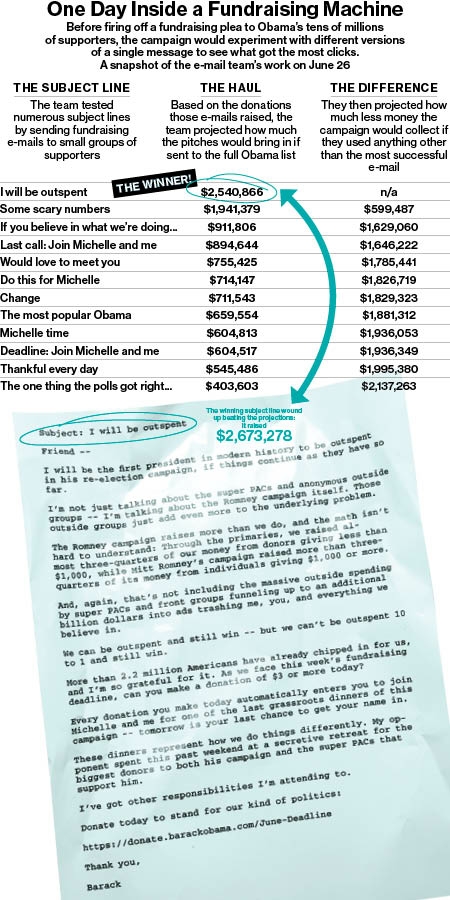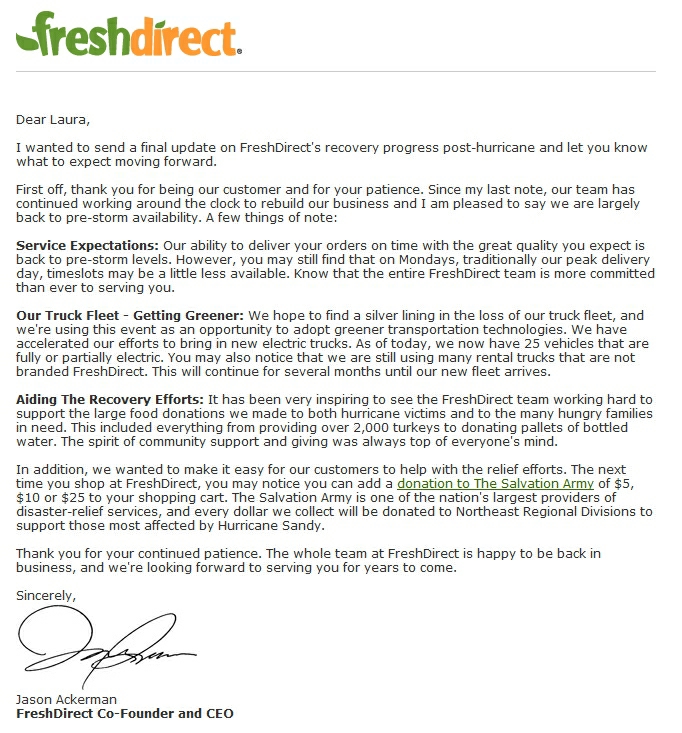Fallout and Predictions for Instagram
Last week, Instagram announced changes to its privacy policy and has since lost 25% of its users. The photo-sharing site, owned by Facebook, clarified its terms of service to be closer in line with Facebook's. Changes laid groundwork for advertising on the site:
"To help us deliver interesting paid or sponsored content or promotions, you agree that a business or other entity may pay us to display your user name, likeness, photos (along with any associated metadata), and/or actions you take, in connection with paid or sponsored content or promotions, without any compensation to you."
 The new policy drew threats from Instagram heavy weights Justin Bieber and Kim Kardashian. #Boycottinstagram quickly gained momentum on Twitter.
The new policy drew threats from Instagram heavy weights Justin Bieber and Kim Kardashian. #Boycottinstagram quickly gained momentum on Twitter.
In response, the company has apologized and reverted to its original terms of service.
Although Instagram is still bruised, at least one commentator is optimistic about the company and its quick growth to 100 million users.
Discussion Starters:
- What's your reaction to Instagram's first revision to its privacy policy?
- How well did the company recover from the criticism? What persuasive strategies did Kevin Systrom use in his blog post?
Herbalife's Unskilled Response to Criticism
After strong criticism of Herbalife, a multi-level marketing company, the CEO's response is wanting.
Bill Ackman, CEO of Pershing Square Capital Management, called the weight management and nutritional supplement company a "pyramid scheme." In a 334-slide presentation, Ackman explained why his hedge fund is shorting the stock, with a price of 0 and anticipation of the company's demise. Ackman said he felt so , "I don't want to make any money from this, 100% will go to the Pershing Square Foundation."
Calling a company a "pyramid scheme" is a harsh blow. Such companies prey on people who buy into a business with little hope that they'll make any money. More typically, investors who buy in late lose everything.
The LA Times published CEO Michael Johnson's description of the company's reaction to Ackman's presentation:
"About 15 company officials, including Johnson, sat at a conference table in company headquarters and watched Ackman's presentation, growing angrier as he made his case.
"'There were a lot of cat-calls. He's not up to speed on the Herbalife of today,'" Johnson said. "'It was so filled with inaccuracies I haven't got the time. Our distributors get compensated for selling the product, not for recruiting.'"
Although Johnson said that the company would investigate the claims and respond in January, no other explanations or counterclaims were offered.
Discussion Starters:
- Review Ackman's slide presentation. What principles for visuals for an oral presentation does it follow? What are Ackman's strongest and weakest arguments?
- How should Herbalife executives respond now?
Hitler Humor Falls Short
As it turns out, Hitler jokes can offend people. French bank BNP used a parody of Hitler from the movie, "Downfall" as a motivational video for employees. Some employees didn't find it funny.
A bank employee created the video, which was originally shown last year at a seminar for 100 international managers in Amsterdam. Apparently, it was uploaded to the company's intranet site for more employees to view.
Similar parodies have been used many times and are popular on the web, such as this example of Hitler's reaction to the iPad. The bank's version shows Hitler as a Deutsche Bank executive angry that competitor BNP is succeeding in the foreign exchange market.
It's possible that employees didn't know the history of the clip. Still, some had strong negative reactions:
"We could not believe the bank had actually dared to do that-make an analogy between our competitors and the Nazi regime. It took us a few minutes to take it in."
"We were shocked. Nobody knew how to react. Some Jewish employees from the United States did not find it funny at all."
Discussion Starters:
- How would you describe the bank's original intent of using the parody?
- Why do you think the controversy became public now, rather than after the seminar in Amsterdam last year?
- What's your view of how some employees reacted?
NRA Press Conference Called a "Train Wreck"
Words like "shameful," "disaster," and "mean-spirited, cold, and misguided" have described the National Rifle Association's press conference in response to the Newtown, CT, school shooting that left 26 dead, including 20 children.
In a tone best left for a boardroom plea to fund a new product, NRA Executive Vice President Wayne LaPierre, as expected, defended guns. His focus, presented early in the conference, was how to "protect our children." The organization's ideas are to have "an active, national database of the mentally ill," armed guards in schools ("a police officer in every school"), and armed teachers and principals.
LaPierre blamed video games, the media's misrepresentation of guns, decreasing prosecutions of violent crime, and the "criminal class: killers, robbers, rapists, and gang members, who have spread like cancer." Using questionable logic, LaPierre warned that another hurricane or terrorist attack could bring about a "recipe for a national disaster." At one point, LaPierre seemed to blame the Sandy Hook teachers, who tried to intervene but couldn't without guns. He said, "The only thing that stops a bad guy with a gun is a good guy with a gun."
The speech was interrupted by protestors carrying signs and yelling, "The NRA has blood on its hands."
LaPierre said, "While some have tried to exploit tragedy for political gain, we have remained respectfully silent." The NRA had issued a statement to this effect. However, critics say the organization's silence on social media this week was a mistake and point out the contraction of President David Keene's closing line: "This is the beginning of a serious conversation, but we won't be taking questions today." In fairness, he also said that the group will answer questions next week.
Discussion Starters:
- Who was LaPierre's intended audience? To what extent would the press conference have appealed to that group?
- What do you think were the NRA's communication objectives for the conference?
- To avoid criticism, what could have been a better approach for the organization?
Ten Jargon Words of 2012
PR Daily asked readers to report their top jargon words of the year.
The winners are:
- Game-changer
- At the end of the day (and its cousin, having said that)
- YOLO
- Epic
- Low-hanging fruit
- Value-add
- Impactful
- Utilize
Some of these are real hangers-on. We're not yet tired of "epic fail," for example? But others are newer-at least to me. YOLO suddenly seems more popular than Pinterest.
Image source: PR Daily.
Discussion Starters:
- What do these words mean? After you define each, try to find a substitute.
- What's the problem with overusing jargon? Is it a big deal at all?
Starbucks' Hashtag Backfires
Another company has had its Twitter hashtag hijacked. In a high-risk campaign, Starbucks asked people to use #spreadthecheer to have their holiday messages projected on a large video screen near the Natural History Museum in London at a public ice rink.
Unfortunately, the timing was off. Starbucks recently has been criticized for tax breaks in the UK. Tweets were less than generous.
- "I like buying coffee that tastes nice from a shop that pays tax. So I avoid @starbucks #spreadthecheer"
- "Tax paid: £8.6m. Additional tax paid to improve public image: £20m. Posting live tweets to a big screen: priceless. #spreadthecheer"
As The Consumerist wrote, "The people at Starbucks have apparently never used the Internet." It does seem that the company should have been more cautious, particularly given the tax issue.
So far, Starbucks has not commented on the failure.
Discussion Starters:
- Read about other failed Twitter campaigns. What do these situations share in common?
- Should companies just stop using Twitter hashtags?
Police News Conference About the Newtown, CT, School Shooting
A terrible tragedy took place at an elementary school in Newtown, CT. A school shooting left at least 27 people dead, including 18 children (according to an MSNBC count to date). In the face of such an unimaginable event, state police delivered a news conference to update the public.
The news conference begins (at least what we see here), with an explanation of why the CT state governor isn't present at the conference.
Next, the lieutenant explained what happened, with a focus on safety. He also acknowledged fatalities but said that more information was not being released. In most situations like this, the priority is on notifying families: no one wants to hear on TV that a loved one has been killed.
The conference ends with promises for updates and assurance that "the public is not in danger."
Discussion Starters:
- This news conference is very soon: how well did the police handle the news?
- What are the most important points that the police want people to know at this point? To what extent did they accomplish these objectives?
Cheerios' Facebook Campaign Fuels Controversy over GMOs
Another social media campaign gone awry: Cheerios' attempt for people to comment on what the cereal means to them turned into a free-for-all about the product. Thousands of posts criticized the use of GMOs (genetically modified organisms) in the cereal. The comments likely are the result of recently defeated Proposition 37, which would have required labeling of GMO products.
General Mills had been posting the comments, some via an app that displayed them in the Cheerios font. Since then the company has discontinued the app and stopped posting comments for some time. The company also removed anti-GMO photos from the Facebook page.
Todd Larsen, Green America Corporate Responsibility Programs Director, encourages consumers to understand the product and calls on the company to respond:
"At GMO Inside's Facebook page, people can see which ingredients in Cheerios and other products are likely to be genetically modified. Cheerios needs to label or remove the GMO ingredients. Consumers have a right to know."
The company's response has been minimal. Where the app was on the Facebook page is now this note:
"We consider your comments, and we listen to your point of view. Our community is passionate about food and about Cheerios. There are many varied opinions and they are often very strong. We've created this space to enable robust conversations, and we invite you to share your thoughts on things we're doing well and on areas we can improve. We ask only that you remain respectful and considerate of others as you're posting, in keeping with our community guidelines."
Critics say that General Mills should have known better: the opposition was clear, so the social media campaign was too risky, and the result is not surprising.
Discussion Starters:
- What's your view of GMO products? Do they concern you or not? What research are you relying on to shape your opinion?
- How else should General Mills respond to the controversy on its Facebook page or elsewhere?
"Gangnam Style" Rapper Psy Apologizes for Anti-American Song
Psy, the popular "Gangnam Style" rapper, has apologized for anti-American lyrics in a 2004 song.
At a charity event, Psy met with President Obama and addressed the recent reports of his earlier protest song, "Dear American." The inflammatory words included, "Kill those f---ing Yankees who have been torturing Iraqi captives/Kill those f---ing Yankees who ordered them to torture/Kill their daughters, mothers, daughters-in-law and fathers/Kill them all slowly and painfully." In a 2002 concert, Psy smashed an American tank.
Although an online petition called for Psy to be removed from the "Christmas in Washington" event at the White House, the show went on as planned.
Through MTV, Psy issued this apology:
"As a proud South Korean who was educated in the United States and lived there for a very significant part of my life, I understand the sacrifices American servicemen and women have made to protect freedom and democracy in my country and around the world. The song I was featured in -- from eight years ago -- was part of a deeply emotional reaction to the war in Iraq and the killing of two innocent Korean civilians that was part of the overall antiwar sentiment shared by others around the world at that time," the statement read. "While I'm grateful for the freedom to express one's self I've learned there are limits to what language is appropriate and I'm deeply sorry for how these lyrics could be interpreted. I will forever be sorry for any pain I have caused anyone by those words.
"I have been honored to perform in front of American soldiers in recent months - including an appearance on the Jay Leno show specifically for them - and I hope they and all Americans can accept my apology," the statement concluded. "While it's important we express our opinions, I deeply regret the inflammatory and inappropriate language I used to do so. In my music I try to give people a release, a reason to smile. I have learned that though music, our universal language we can all come together as a culture of humanity and I hope that you will accept my apology."
Discussion Starters:
- Was allowing Psy to perform at the charity event the right decision? Why or why not?
- What's your reaction to Psy's apology? What communication strategies does he use successfully-or not?
Citi Lays Off 11,000 and Blunders Press Release
 Someone needs a better editor-and a heart. To announce 11,000 employee layoffs, Citi issued a press release titled, "Citigroup Announces Repositioning Actions to Further Reduce Expenses and Improve Efficiency." "Repositioning" appears 17 times in the release.
Someone needs a better editor-and a heart. To announce 11,000 employee layoffs, Citi issued a press release titled, "Citigroup Announces Repositioning Actions to Further Reduce Expenses and Improve Efficiency." "Repositioning" appears 17 times in the release.
Sure, layoffs usually are good news for Wall Street, but the real damage is the layoffs, not mentioned until late in the release and suspiciously absent from the three lines summarizing the statement up front:
- Fourth quarter 2012 pre-tax charges to total approximately $1 billion
- Approximately $900 million of expense savings expected to benefit 2013 results
- Projected annual expense savings to exceed $1.1 billion beginning in 2014
The quote from new CEO Michael Corbat is a real tear-jerker, too:
"These actions are logical next steps in Citi's transformation. While we are committed to – and our strategy continues to leverage – our unparalleled global network and footprint, we have identified areas and products where our scale does not provide for meaningful returns. And we will further increase our operating efficiency by reducing excess capacity and expenses, whether they center on technology, real estate or simplifying our operations."
Although companies may justify jargon as required for the Securities Exchange Commission (SEC), they are free to craft messages any way they would like. Companies need to be smarter about their audiences, knowing that employees likely will read their press releases.
Assignment Ideas:
- Read the entire press release. Identify all of the verbs that can be improved. Also look for nominalizations, and change these nouns and adjectives to strong verbs.
- Rewrite the press release. What improvements can you make to the text and the CEO's quote?
Penn State Investigates Sorority's Mexican-Themed Party
The women of Chi Omega Nu Gamma at Penn State may be regretting their Mexican-themed party. Sporting ponchos, sombreros and a few mustaches, women held signs that read "Will Mow Lawn for Weed + Beer" and "I Don't Cut Grass. I Smoke It."
The university is investigating the situation and, according to one source, is considering suspending the sorority. The Panhellenic Council executive board released a statement about the incident:
"The Penn State Panhellenic Council recognizes the offensive nature of the photo and is therefore taking the matter very seriously. We are addressing the situation immediately with the members of the chapter in conjunction with their national headquarters. The Penn State Panhellenic Council does not condone any form of derogatory behavior from any of our members. Our Council and all its members strive to hold ourselves to a high standard and are disappointed by any failure to meet these expectations."
Vice President of the Mexican American Student Association, Cesar Sanchez Lopez, also commented on the incident:
"The Mexican American Student Association is disappointed in the attire chosen by this sorority. It in no way represents our culture. Not only have they chosen to stereotype our culture with serapes and sombreros, but the insinuation about drug usage makes this image more offensive. Our country is plagued by a drug war that has led to the death of an estimated 50,000 people, which is nothing to be joked about."
Jessica Riccardi, president of the sorority chapter, issued this apology:
"Our chapter of Chi Omega sincerely apologizes for portraying inappropriate and untrue stereotypes. The picture in question does not support any of Chi Omega's values or reflect what the organization aspires to be."
The sorority has suffered some backlash. Posters criticizing the photo are circulated around campus.
Discussion Starters:
- What's your reaction to the party? Is it offensive, just plain fun, or something else?
- What, if any, action do you think the university should take?
Lego Comes Through for Little Boy
For two years, James Groccia, an 11-year-old boy with Asperger's Syndrome, saved up for his dream Lego train set, but it had been discontinued. James wrote a letter to Lego and received a nice response-and the set he wanted.
James's mother, Karen, described the boy's process for writing the letter:
"James was very concise about what he wanted to say. He planned it, and I just helped him organize his thoughts."
How about that. James hasn't even taken a Business Communication course.
Lego's response is very enthusiastic and obviously tailored to James:
Discussion Starters:
- James's letter is great-for an 11-year-old boy-but it could be improved to meet business writing principles. What could be changed?
- Lego's letter isn't perfect either. What would you advise that Megan change in future letters?
News Corp's Reorganization Announcement
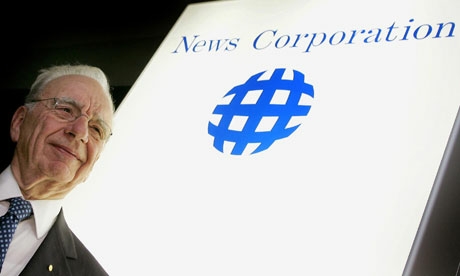 News Corp will split into two separate, public companies: one focused on entertainment and the other on publishing. The company also announced the closing of its tablet newspaper because of low readership.
News Corp will split into two separate, public companies: one focused on entertainment and the other on publishing. The company also announced the closing of its tablet newspaper because of low readership.
In a press release, the company announced leadership changes of the publishing company (News Corporation), additional organization changes in the New York office, organizational changes in the London office, and plans for the separation of the publishing company from the entertainment company (Fox Group).
In an internal email, Chairman Rupert Murdoch explained the changes, complimented the employees' work, and shared his personal mission for the company:
"Many of you know that a belief in the power of the written word has been in my bones for my entire life. It began as I listened to my father's stories from his days as a war correspondent and, later, a successful publisher. It deepened when, starting in grammar school, I rolled up my sleeves and worked alongside fellow students to publish school journals. I witnessed the hunger people had for well-written, thoroughly observed stories ... stories that provide not just information, but insight. That hunger is alive and well today; my personal mission is to serve and satisfy the human need for insight as well as I possibly can."
Discussion Starters:
- Read the company's press release in detail. How is it organized? What works well about the structure, and what could be improved?
- What is your reaction to Murdoch's email to employees? What are his most important messages, and how do you think employees might react?
Why We Should Stop Making Fun of Obama's Emails
During the presidential campaign, the Obama Administration was criticized for sending emails some called "creepy" and "desperate." Well, laugh no more! According to Bloomberg Businessweek, "Most of the $690 million Obama raised online came from fundraising emails."
With subject lines such as "Wow," "Hey," and "Join me for dinner?" the emails were crafted by a team of analysts experimenting with different approaches to see what garnered the most financial support. During the campaign, Obama's staff was secretive about the email strategy, but now we learn that 20 writers would draft as many as 18 variations of emails to test responses before sending out the winning version.
Amelia Showalter, the director of digital analytics, explains how the campaign changed emails based on results:
"We were so bad at predicting what would win that it only reinforced the need to constantly keep testing. Every time something really ugly won, it would shock me: giant-size fonts for links, plain-text links vs. pretty 'Donate' buttons. Eventually we got to thinking, 'How could we make things even less attractive?' That's how we arrived at the ugly yellow highlighting on the sections we wanted to draw people's eye to."
What can business writers learn from the analysis? Here are a few key points that may be adapted for work email:
- The most effective subject lines were similar "to what you might see in your in-box from other people," according to email director.
- Light profanity (e.g., "hell") got a strong reaction.
- Although the emails may have been "mildly irritating" to some, people did not unsubscribe, showing a lot of tolerance for a lot of messages.
Discussion Starters:
- Based on the previous criticism, are you surprised at the results of the email campaign? Why or why not?
- I'm not sure that business writers should use profanity in their email, but how could you interpret this finding and write subject lines for a professional work environment?
- Review a few of your own emails sent for business purposes. Given this analysis, what, if anything, would you change?
Bank of America CEO's "Star Trek Special"
This isn't a good week for Bank of America. A Rolling Stone article describes CEO Brian Moynihan looking foolish during his testimony about the bank's acquisition of Countrywide Financial Corporation, one of the companies that sold subprime mortgages before the 2008 crash:
"In this long-awaited interrogation – Bank of America has been fighting to keep Moynihan from being deposed in this case for some time – Moynihan does a full Star Trek special, boldly going where no deponent has ever gone before, breaking out the 'I don't recall' line more often and perhaps more ridiculously than was previously thought possible. Moynihan seems to remember his own name, and perhaps his current job title, but beyond that, he'll have to get back to you.."
The full testimony is, for a court document, rather entertaining to read, including this excerpt:
Discussion Starters:
- Read as much of the full testimony as you can tolerate. What's your view of how Brian Moynihan comes across?
- This is a difficult question without knowing the legal constraints, but how else do you think Moynihan could have handled the questions?
Bank of America Gets Slammed for Losing Death Certificate Three Times
 In what sounds like an astounding lack of decent service, Bank of America has given the son of a deceased woman more than the usual run around. Matt, a college student, lost his mother on October 1. Since then, he has been fighting with the bank to deal with the mortgage on her property.
In what sounds like an astounding lack of decent service, Bank of America has given the son of a deceased woman more than the usual run around. Matt, a college student, lost his mother on October 1. Since then, he has been fighting with the bank to deal with the mortgage on her property.
According to Matt, as told to The Consumerist, the bank has lost several copies of the woman's death certificate:
"The first call ended after the associate we were speaking to told us that the only person they could talk to was the person who was listed on the mortgage: my mother.
"Since she was deceased, that's obviously not possible, so we explained 'death' to the person we were speaking to. They said they had to talk to my mother, we decided it was hopeless, and gave up.
"We later got on the phone with someone else who said to send them a copy of the death certificate. They lost that one. Then they lost the next one. Then they lost the third, hand-delivered, death certificate. They finally managed to get the death certificate to a filing cabinet on the fourth try. They sent a letter acknowledging they had received the death certificate, but still they asked to speak with the person on the mortgage."
Curiously, Bank of America was criticized recently for requesting a death certificate of a customer who isn't dead. A filmmaker created a short video explaining that "Bank of America wants you to die before you modify" a mortgage loan.
This could explain why, on the Customer Service Scoreboard, Bank of America is rated 25.91 out of 200 (compared to Zappos, rated 186). The site includes 1131 negative comments and 46 positive comments-not a great showing.
Discussion Starters:
- What gives the consumer credibility in his assessment? In other words, how do we know that Matt is likely telling the truth about what has happened?
- As of this writing, I don't see a response from Bank of America about the situation with Matt. If you were the head of customer service for the bank, would you write a statement about the situation? If so, what would you include?
Tobacco Companies Have to Admit Deception
 For at least the next two years, tobacco companies will place ads that admit they have been lying. A federal judge has ruled that companies such as Reynolds, Philip Morris (a division of Altria), and Lorilland will start spending some of their advertising dollars to compensate for "past deception."
For at least the next two years, tobacco companies will place ads that admit they have been lying. A federal judge has ruled that companies such as Reynolds, Philip Morris (a division of Altria), and Lorilland will start spending some of their advertising dollars to compensate for "past deception."
The judge ordered "corrective statements" to appear on cigarette packaging, as commercials on major TV stations, as full-page newpaper ads, and on corporate websites:
- Smoking kills, on average, 1,200 Americans. Every day.
- A federal court has ruled that the defendant tobacco companies deliberately deceived the American public by falsely selling and advertising low tar and light cigarettes as less harmful than regular cigarettes.
- Cigarette companies intentionally designed cigarettes with enough nicotine to create and sustain addiction.
- When you smoke, the nicotine actually changes the brain-that's why quitting is so hard.
Curiously, the media outlets don't seem to include social media.
The tobacco companies tried to omit words such as "deceived" in these ads, but the judge's order stands. Still, companies may try to appeal the decision.
Discussion Starters:
- What's your view of the judge's decision: is it fair, or does it violate the companies' rights (as they claim)?
- What impact, if any, do you think the advertisements will have on smokers or people thinking of taking up smoking? Could the advertisements influence some groups more than others? Which and why?
- Why didn't the judge include social media outlets for these ads? What, if any, difference would this make?
FreshDirect Updates Customers on Storm Recovery
FreshDirect Co-Founder and CEO Jason Ackerman sent an email to update customers on the company's recovery since Hurricane Sandy. Located in Long Island City, Queens, FreshDirect was hit hard by the storm.
Early in the message, Ackerman writes that FreshDirect is "largely back to pre-storm availability." The main point is clear, but where is it placed, and is "largely" the best word choice?
With easy-to-read bullets, Ackerman highlights other key messages for customers about meeting service expectations, replacing lost trucks with greener options, and contributing to relief efforts.
Discussion Starters:
- What are the other strengths of Ackerman's email, and what other suggestions would you make to improve the message?
- If you were a customer of FreshDirect, how do you think the email would make you feel? How would it affect your image of the company?
Guy Fieri Gets Mocked and Responds
The New York Times published a scathing review of Guy Fieri's new restaurant, Guy's American Kitchen & Bar in Times Square. Reviewer Pete Wells wrote just a series of questions including the following:
- Hey, did you try that blue drink, the one that glows like nuclear waste? The watermelon margarita? Any idea why it tastes like some combination of radiator fluid and formaldehyde?
- How did Louisiana's blackened, Cajun-spiced treatment turn into the ghostly nubs of unblackened, unspiced white meat in your Cajun Chicken Alfredo?
- What is going on at this new restaurant of yours, really?
- Does this make it sound as if everything at Guy's American Kitchen & Bar is inedible? I didn't say that, did I?
To respond to the review, Fieri appeared on The Today Show. When asked whether reading the review felt like a "punch in the gut," Fieri said he thought the review was "ridiculous" and "overboard." He took issue with the tone and question style, and implied that the reviewer might have had another agenda:
"It's a great way to make a name for yourself: go after a celebrity chef that's not a New Yorker that is doing big concept, and in the second month [fist punch into his hand]..."
The interviewer also pointed to less-than-stellar Yelp reviews, to which Fieri admitted that the food isn't perfect but noted that it's still early in the restaurant's tenure.
Saturday Night Live produced a skit about Fieri, although it didn't appear on air:
Discussion Starters:
- What's your assessment of the review? Is it probably fair, a personal attack, or something else?
- How effective is Guy Fieri's response on The Today Show? How could he have taken a different approach?
Fun Facts About the Emoticon
The New York Times today featured Scott Fahlman, creator of the smiley face. Fahlman invented the character, which he called a "joke marker," back in 1982 to temper flaming in online discussion forums. 
A linguist analyzed millions of tweets to see how emoticons were used and found that 10% of tweets had some type of character. His reasoning was that people could more accurately describe emotion in a longer paragraph, but shorter messages may require explanation.
We could debate whether and how emoticons should be used in business writing ad nauseum. Proponents see the ocassional smiley as a way to ensure accurately interpreted messages, particularly to convey tone, often misunderstood in business email.
Opponents think emoticons are silly and unprofessional. Writing instructors worry about the degradation of the language. As one communication lecturer said, "Certainly I understand the need for clarity. But language, used properly, is clear on its own." A British radio personality said, "If anybody on Facebook sends me a message with a little smiley-frowny face or a little sunshine with glasses on them, I will de-friend them. I also de-friend for OMG and LOL. They get no second chance. I find it lazy. Are your words not enough? To use a little picture with sunglasses on it to let you know how you're feeling is beyond ridiculous."
A recent CNN article offers this sound advice: use an emoticon if you must, "But nix emoticons from any initial emails with new contacts."
Discussion Starters:
- When do you use emoticons in your writing?
- In addition to initial emails, as CNN suggests, when would you avoid using emoticons in business email?





